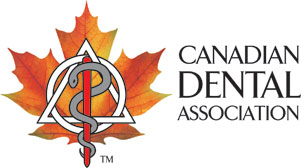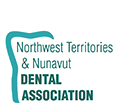 Dr. Robert Sutherland
Dr. Robert Sutherland
Do you recall the message that runs along the bottom of the side mirrors on many cars? "Objects are closer than they appear." This message can also serve as a reminder for those of us in dentistry; that we are all closer than we may think.
In his book The Tipping Point, author Malcolm Gladwell discusses an experiment undertaken by Dr. Stanley Milgram in the late 1960s. Famous for his social obedience research, Dr. Milgram was also interested in learning more about how closely people were related to each other. He was able to show that any one person is linked to another by approximately 6 people–leading to the popular phrase "6 degrees of separation." His research went on to identify key individuals who, like the centre of the spokes on a wheel, were essential in forming the links that join people together. Gladwell called such individuals "connectors."
There are approximately 20,000 dentists in Canada and we come from schools across Canada and around the world. We practise in different jurisdictions, belong to different provincial associations and are regulated in different environments. We are generalists, specialists, academics, military and students. However, CDA is a common denominator for the dentists of Canada–a connector of people, places and ideas.
The connection we share is based on a foundation of shared values, the pursuit of a common vision and the decision to solve common problems through joining resources, sharing information and working together. The connection, through a partnership with our provincial and territorial counterparts, provides value to dentists, our profession and society. And the connection, in conjunction with our academic and regulatory colleagues, has led to an environment that allows us to practise one of the highest levels of oral health care in the world.
We live in an ever-shrinking world where changes in the nature and speed of communication have made all aspects of our profession increasingly influenced by national and global issues. What happens in Corner Brook can affect what's happens in Kamloops. What happens in Australia can affect what happens in Canada. Through the skills of its dedicated staff and volunteers, CDA is ideally positioned to connect what is happening in the national and global dental environment with the needs of our profession and the public.
Over the past few years, representatives of your national and provincial associations have worked together to create a structure and process to achieve a common vision for the profession. And we have shown significant progress in sharing resources and working together on issues as large and diverse as access to care and the image of the profession.
We continue to scan the professional landscape to determine how issues facing the country may affect our sector. For instance, studies in Canada reveal an aging population that is retaining their teeth far longer than previous generations. The number of individuals living with complex medical conditions is also growing and all health care providers, including dentists, will likely need to obtain new competencies to address these evolving care needs.
We are all connected by our distinguished past, our dynamic present and our common vision for a promising future. The next time you attend a local dental meeting or have a discussion with a colleague in Canada or beyond, remember that we are all closer than we think.











